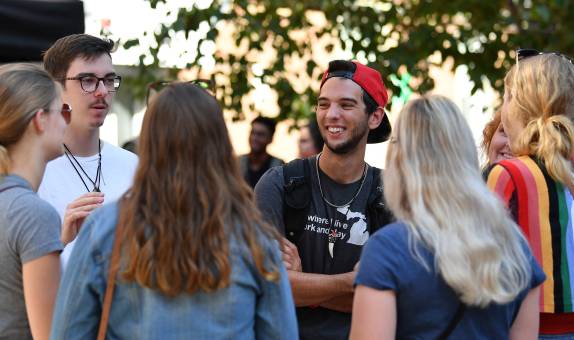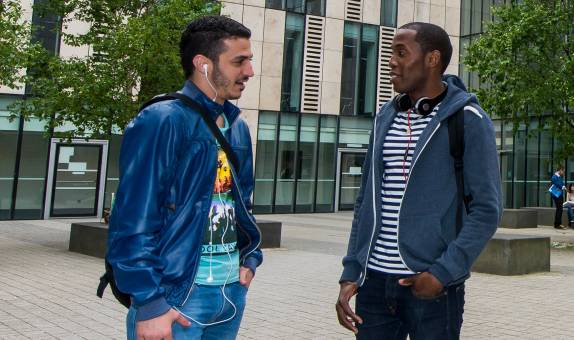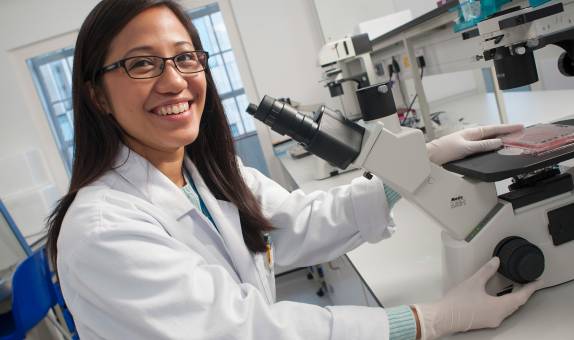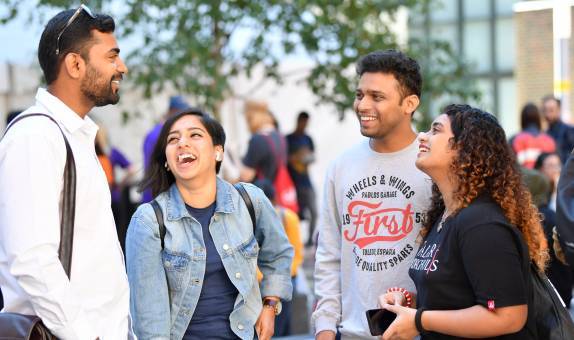All postgraduate taught (masters) applicants (excluding Masters by Research MPhil/PhD) who require a Student Visa must pay a £5,000 non-refundable deposit*, which is treated as part of the first instalment of your tuition fee before you can request a CAS.
* Exclusions
You are not required to pay the non-refundable deposit if:
- you are an undergraduate student;
- you do not require a Student Route Visa to study at Kingston University;
- your studies are being sponsored by your government or a company (evidence of your sponsorship must be provided);
- you are receiving funding or a student loan from Lånekassen, US Federal Student Aid (FAFSA) or the Canada Student Financial Assistance Program (CSFA Program) (evidence must be provided);
- you are receiving a student loan from a regulated student loan scheme (evidence of your student loan for the full fee amount must be provided).
Pay your non-refundable deposit now
After you have paid the postgraduate deposit (if applicable), log into OSIS select the 'Your Visa' tab and then click ‘Request a CAS'. Remember you must pay the deposit first.
Follow the steps and answer the questions – we will ask you:
- If you are studying or have previously studied on a student visa in the UK
- If you have had any previous UK visa refusals*
- If you have any other pending applications with UKVI
- If your studies are either partially or fully funded by a scholarship, organisation or government
Our CAS team will assess the documents you have uploaded to ensure they meet UKVI requirements and may contact you if they require any additional documents or information, so check your email regularly. You can also track the progress of your CAS request by logging in to OSIS.
* Please note: You must tell us about any previous visa refusals, and upload scanned copies of the refusal notice (or other confirmation) onto OSIS using the instructions outlined below.
You will be asked to upload supporting documents to OSIS. Our CAS team will assess the documents you upload to ensure they meet UKVI requirements. If we require any additional documents or information, the CAS team will contact you directly, so check your email regularly.
You can track the progress of your CAS request by logging in to OSIS.
You must submit copies of the following documents:
Financial documents
You must be able to show that you have enough money to pay your course fees and living costs while you study in the UK.
Your supporting documents must show the full amount needed (first year course fees + £12,006 maintenance funds) held for a consecutive 28-day period. At no time can the funds dip below the total amount required.
A bank statement should:
- be printed on the 29th day.
- show the closing balance on the account – the date on the statement should be no more than 31 days before the date you submit your student visa application.
You can show you have enough money using:
- an official financial or government sponsorship or grant;
- a student loan from a government, government-sponsored loan company, or a regulated student loans scheme;
- your own money;
- your parents' money (if they provide a letter confirming they agree to you using it this way);
- your partner's money if your partner is present in the UK or applying at the same time.
If using your parents' bank statements, you must include a letter of support from your parents and proof of the relationship (such as a birth certificate). Read the Kingston Guide to bank statements (PDF), Bank Verification Form and UKVI Student Route Guidance for detailed information about the financial requirements.
Tuberculosis (TB) certificate
If you are resident in any of these listed countries, you'll need to have a TB test from a UKVI-approved TB test centre.
ATAS certificate
Students intending to study certain science or engineering degrees will need to apply for an Academic Technology Approval Scheme (ATAS) Certificate. You can apply for an ATAS certificate up to nine months before the start date of your course. Find out if you need an ATAS certificate.
When your draft CAS is ready, you will receive an email asking you to check and confirm that the details on your draft CAS are correct.
- Log into OSIS.
- Go to the Your Visa page on OSIS.
- Click View draft CAS against your CAS request record.
- Check that each section is correct and confirm the information by approving your draft CAS.
You will receive a copy of your final CAS statement by email when you have approved your draft CAS, and our CAS team has checked your supporting documents.
The CAS statement is an 'e-document', so you will not receive a paper copy.
You can apply for your student visa when you have receive your final CAS statement.
Low-risk nationals
Students from one of these countries are classified as a 'low risk national' (LRN) and will not be required to submit supporting documents with their student visa application. However, UKVI may still request to see your supporting documents after you submit your application, so you must ensure you have them.
If you are a low-risk national you must complete the Low-risk National Self-Declaration Form (Word) and upload it to OSIS.
As a low-risk national you must have access to the required funds for your tuition and maintenance fees but you do not need to provide evidence of this if you complete the LRN form.
The following documents are also required where applicable:
Tuberculosis (TB) certificate
If you are resident in any of these listed countries, you'll need to have a TB test from a UKVI-approved TB test centre.
ATAS certificate
Students intending to study certain science or engineering degrees will need to apply for a clearance certificate as part of the Academic Technology Approval Scheme (ATAS) Certificate. You can apply for an ATAS certificate up to nine months before the start date of your course. Find out if you need an ATAS certificate.









